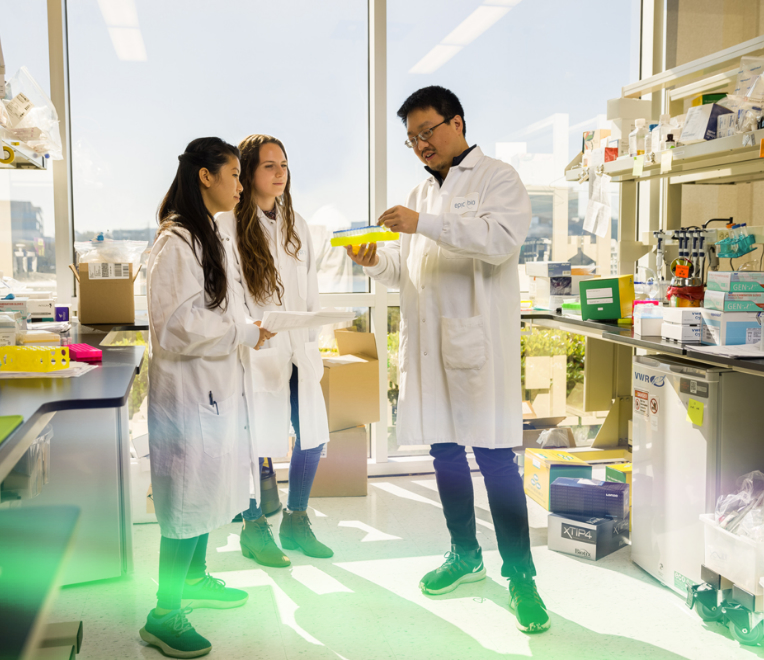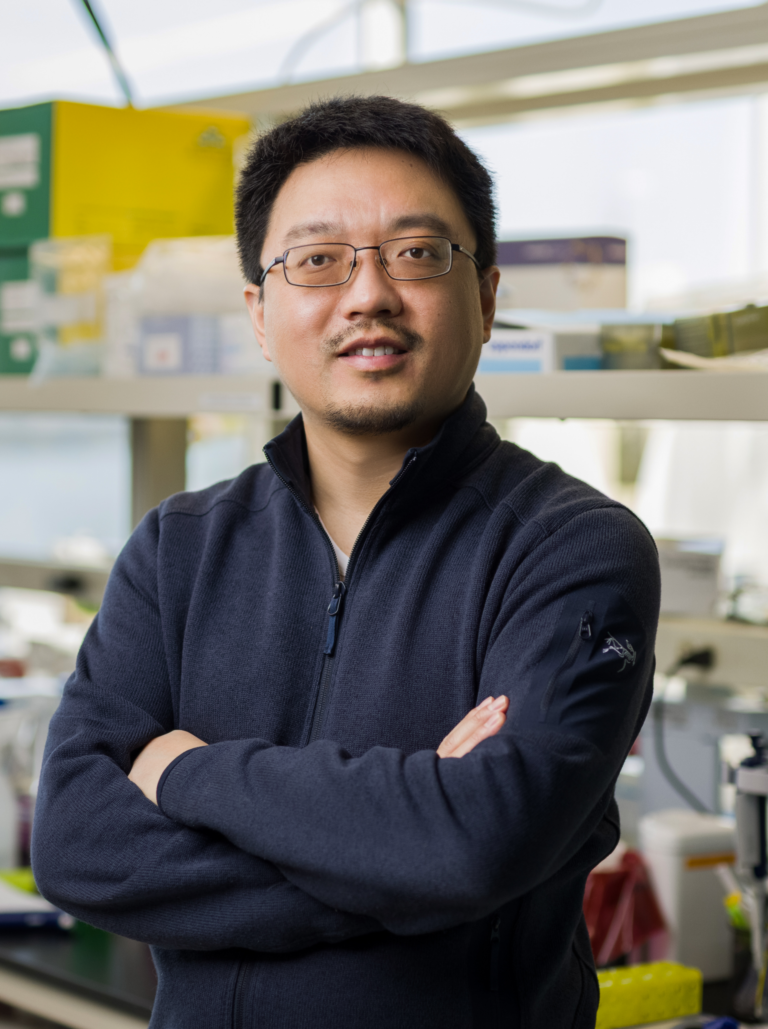Team
Epicrispr Biotechnologies is building the world’s leading therapeutic platform based on the exciting new technology of epigenetic editing.
Team

We were founded by genetic medicine pioneer Stanley Qi, Ph.D., whose fundamental work in epigenetic editing includes the invention of CRISPRa (activation) and CRISPRi (interference). We are translating the powerful potential of epigenetic editing into transformative therapies that can expand the promise of genetic medicine and improve the lives of people with serious diseases.
Our scientific founder
Lei Stanley Qi, Ph.D.
Scientific Founder
Lei Stanley Qi, Ph.D., is one of the leading CRISPR pioneers. He is a named co-inventor on the Nobel Prize-winning CRISPR patent held by the University of California, where he served as a doctoral candidate in the lab of Jennifer Doudna.
Lei Stanley Qi, Ph.D., is one of the leading CRISPR pioneers. He is a named co-inventor on the Nobel Prize-winning CRISPR patent held by the University of California, where he served as a doctoral candidate in the lab of Jennifer Doudna. Since that time, his primary research focus has been the development of tools to modulate gene expression without changing the underlying DNA. He is an associate professor in the Department of Bioengineering and the Department of Chemical and Systems Biology at Stanford University, where his lab has invented numerous technologies combining genome engineering with synthetic biology to probe biological processes and discover new therapeutic approaches.
One of the most notable discoveries made by Dr. Qi was the first demonstration of the nuclease-deactivated Cas9 (dCas9) for sequence-targeted gene regulation in prokaryotic and eukaryotic cells. His lab has further developed a broad CRISPR toolbox of technologies for precise gene regulation, including epigenome editing (CRISPRa and CRISPRi), live cell DNA/RNA imaging (LiveFISH), 3D genome manipulation (CRISPR-GO), CRISPR antivirals for targeting RNA viruses (PAC-MAN), and the development of CasMINI, the smallest Cas protein created to work in human cells.
Dr. Qi holds a B.S. in math and physics from Tsinghua University, an M.A. in physics from the University of California, Berkeley, and a Ph.D. in bioengineering from the University of California Berkeley. He is an associate editor of The CRISPR Journal, a member of the scientific advisory board of the NIH Center for Genome Editing and Recording, and serves on the board of reviewing editors for Science.
One of the most notable discoveries made by Dr. Qi was the first demonstration of the nuclease-deactivated Cas9 (dCas9) for sequence-targeted gene regulation in prokaryotic and eukaryotic cells. His lab has further developed a broad CRISPR toolbox of technologies for precise gene regulation, including epigenome editing (CRISPRa and CRISPRi), live cell DNA/RNA imaging (LiveFISH), 3D genome manipulation (CRISPR-GO), CRISPR antivirals for targeting RNA viruses (PAC-MAN), and the development of CasMINI, the smallest Cas protein created to work in human cells.
Dr. Qi holds a B.S. in math and physics from Tsinghua University, an M.A. in physics from the University of California, Berkeley, and a Ph.D. in bioengineering from the University of California Berkeley. He is an associate editor of The CRISPR Journal, a member of the scientific advisory board of the NIH Center for Genome Editing and Recording, and serves on the board of reviewing editors for Science.
https://twitter.com/stanleyqilab
https://www.linkedin.com/in/lei-stanley-qi-99484239/

